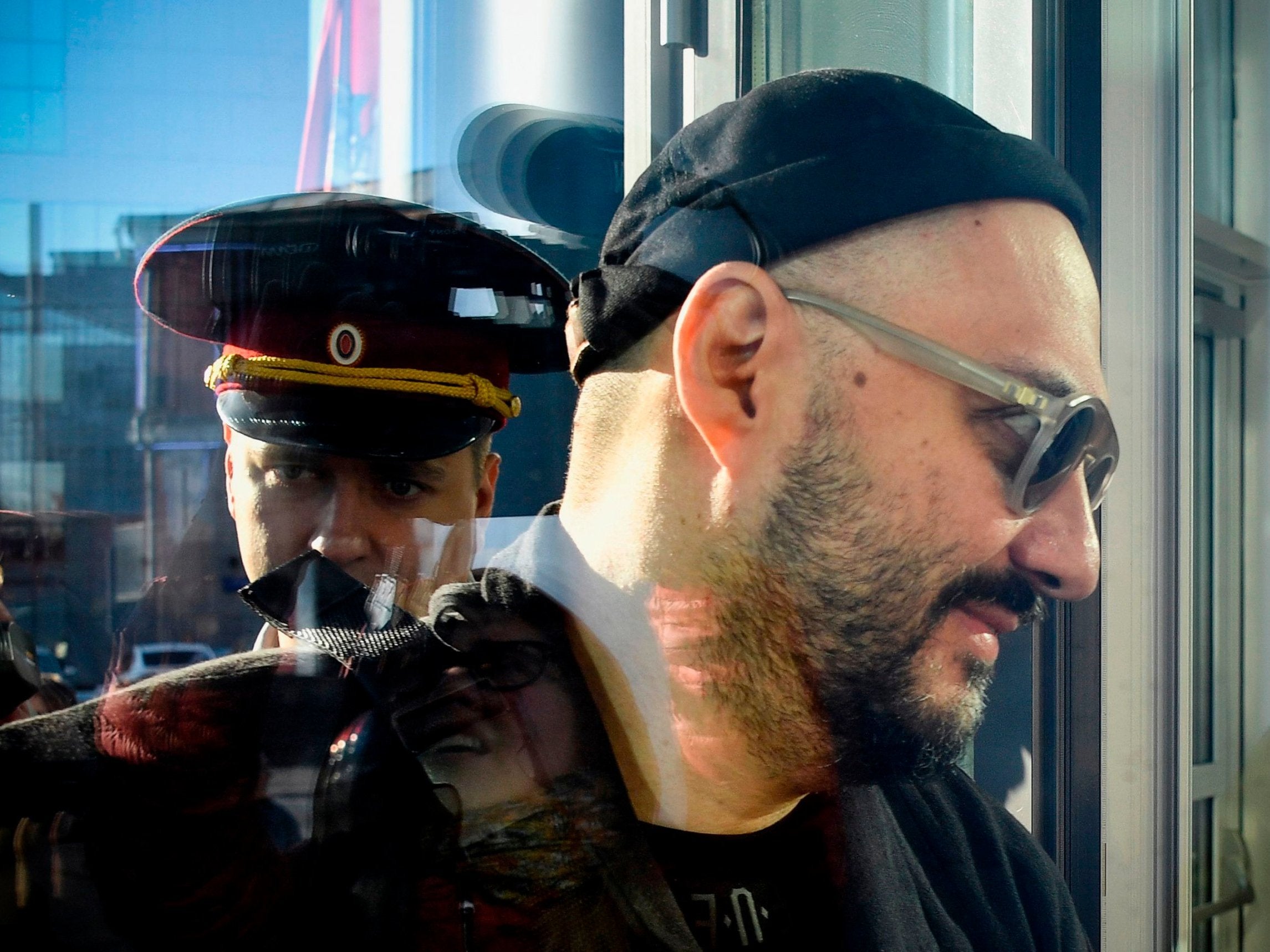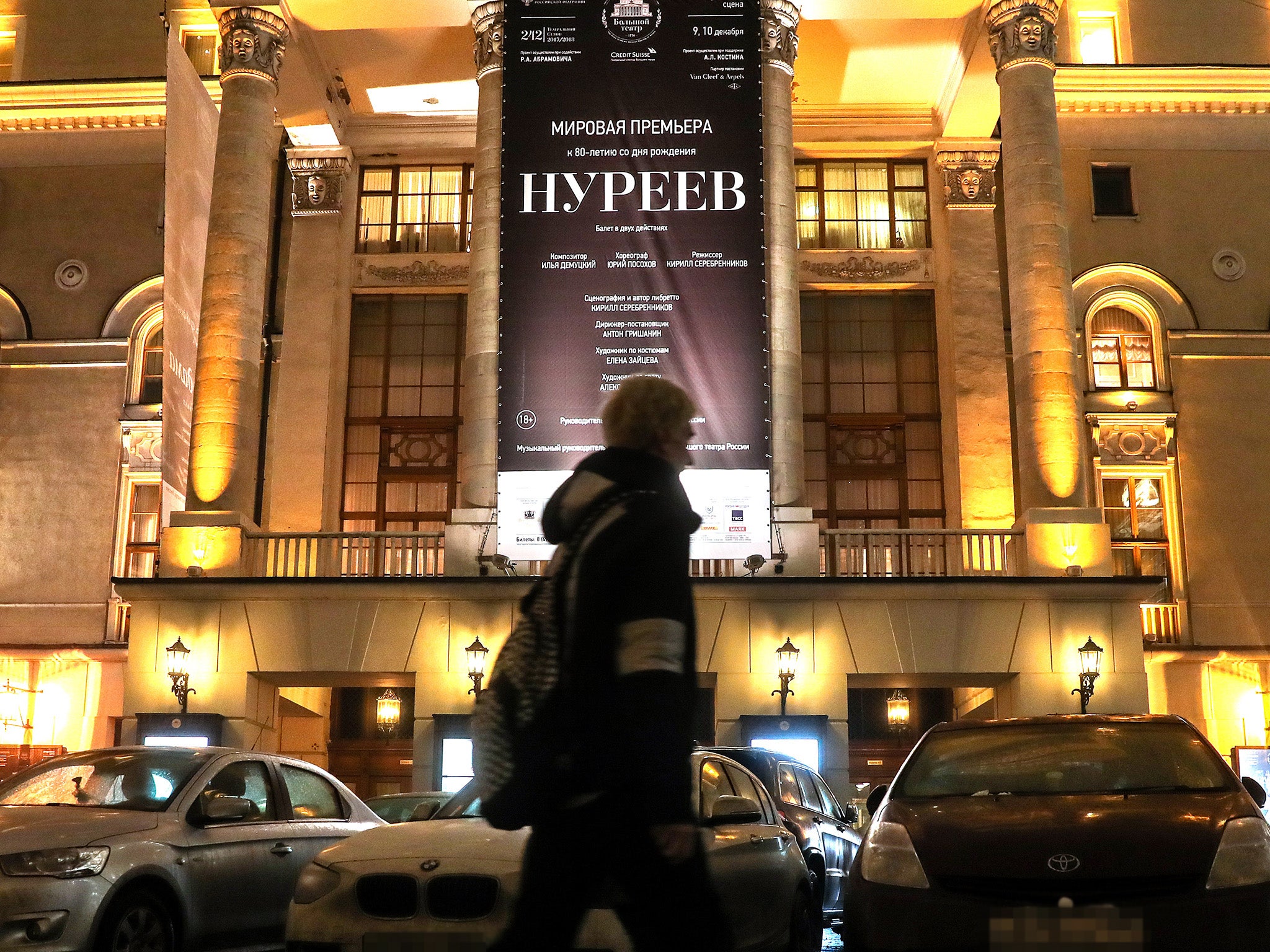Russian theatre director’s trial opens – then adjourns – amid claims of political persecution
‘The trial is clearly connected to Kirill Serebrennikov's work – the way he touched matters of politics, personal life and sexuality’

Your support helps us to tell the story
From reproductive rights to climate change to Big Tech, The Independent is on the ground when the story is developing. Whether it's investigating the financials of Elon Musk's pro-Trump PAC or producing our latest documentary, 'The A Word', which shines a light on the American women fighting for reproductive rights, we know how important it is to parse out the facts from the messaging.
At such a critical moment in US history, we need reporters on the ground. Your donation allows us to keep sending journalists to speak to both sides of the story.
The Independent is trusted by Americans across the entire political spectrum. And unlike many other quality news outlets, we choose not to lock Americans out of our reporting and analysis with paywalls. We believe quality journalism should be available to everyone, paid for by those who can afford it.
Your support makes all the difference.“Try to surprise us,” said Kirill Serebrennikov, addressing a panel of appeal judges in Moscow last month.
The acclaimed theatre director was asking to be released from home arrest. But he might have been talking about any part of his controversial arrest and pretrial investigation. Since being detained in August 2017 on embezzlement charges, the director has seen a case against him develop with the full, predictable tenacity of Russian justice.
On Thursday, the case was due to go to full trial. But at the first session, Judge Irina Akkuratova postponed proceedings for two weeks, due to the illness of a key defence lawyer.
Few doubt that, once it gets going, the process will end badly for Serebrennikov and his fellow accused. Fewer than 0.3 per cent of Russian trials end in acquittals, and many believe influential figures in the Russian elite are pushing for a demonstrative sentence.
Serebrennikov is considered a pioneer of new Russian theatre. Loud and provocative, his work is unusually tolerant by Russian standards, covering the full range of human behaviours, emotions, politics and sexuality. He is well known for his efforts to rebuild a struggling Soviet theatre into an experimental hub, the Gogol Center; one that regularly stages edgy shows on the east side of Moscow.
It was that experimental spirit that led then-president Dmitry Medvedev to award Serebrennikov a grant of 214 million roubles (then, worth approximately £4 million) to develop “innovative” theatre productions. The “Platforma” – platform –project opened in October 2011, and ran to critical acclaim fo three years, producing more than 300 plays and events.
But it was in connection to the project that state prosecutors began an investigation for alleged embezzlement in 2012.
Prosecutors soon lost interest, but the case was picked up in 2017, coinciding with a wave of revanchist conservatism in Russia. To major consternation in the Moscow arts world, police conducted raids on the Gogol Center in May. Later that summer, they arrested Serebrennikov and other key figures from Platforma.
Soon after, Serebrennikov’s ballet about Rudolf Nureyev was postponed amid complaints about the its frank treatment of homosexuality.
Kirill always charted a course that was perpendicular to official cultural policy. He’s paying for that now
The charges that eventually emerged were confused. Serebrennikov stood accused of embezzling anything from 70m-133m roubles. But there were clear mistakes in the investigators’ calculations. And prosecutors alleged plays had never been produced when, in fact, they had won prestigious awards.
The prosecution did have one thing going for it: the cooperation of accountant Nina Maslyaeva, who agreed to give evidence against her former colleagues. Many believe Ms Maslyaeva, who has a previous conviction and was in bad health, had been blackmailed.

Talking to The Independent, Serebrennikov’s lawyer Dmitry Kharitonov dismissed the accusations of embezzlement as “fantasy”.
Others close to theatre accept there may have been irregularities in book-keeping, but that was widespread practice in Russia – given the need to pay in cash, and the impossible nature of some Russian laws.
Serebrennikov has spent 14 months under house arrest, a sanction he and his lawyers say is punitive. During that time, he was unable to visit his elderly father or his mother, who died in February. Serebrennikov’s co-defendant Alexei Malobrodsky, who was held in a high-security prison centre for six months, almost died from heart problems.
Speaking in court last month, Serebrennikov accused prosecutors of taking a sadist pleasure in imposing such restrictions on the defendants: “It’s kind of fun for them, teaching us a lesson. Okay, so there are some patriots in security services who don’t like my plays. Not patriotic enough for them. Not correct enough.”
Though he is forbidden from using the internet, Serebrennikov continues to work. He is overseeing a new production for the Gogol Center, which is due to premiere in December. Another two operas will be performed in Europe – in Hamburg and Zurich – from November. Serebrennikov communicates with his colleagues on USB sticks – sent daily via his lawyers.
“We think it’s very important for Kirill to know his theatre can live on and prosper without him present in person,” said Valery Pecheykin, a playwright at the Gogol Center.
“Of course, our mood goes up and down all the time when we hear news about him, but this is one way we find hope.”
Serebrennikov still enjoys the support of large parts of the liberal political elite. Many of them were in the audience when his Nureyev ballet finally premiered at the Bolshoi theatre in December. But Vladimir Putin has made contradictory statements on the affair. Initially, he called “investigators” fools. Later, he said the fact Serebrennikov had been allowed to stage Nureyev “showed this was an investigation, not persecution”.
Lawyer Kharitonov insisted he believes the case is “not political”, but also said he has little idea about what lies ahead.
Others suggested it is a matter of how “political” is defined.
“Serebrennikov was not a political actor, but the trial is clearly connected to his work – the way he touched matters of politics, personal life and sexuality,” said Valery Pecheykin.
“Kirill always charted a course that was perpendicular to official cultural policy. He’s paying for that now.”
Subscribe to Independent Premium to bookmark this article
Want to bookmark your favourite articles and stories to read or reference later? Start your Independent Premium subscription today.
Join our commenting forum
Join thought-provoking conversations, follow other Independent readers and see their replies
Comments